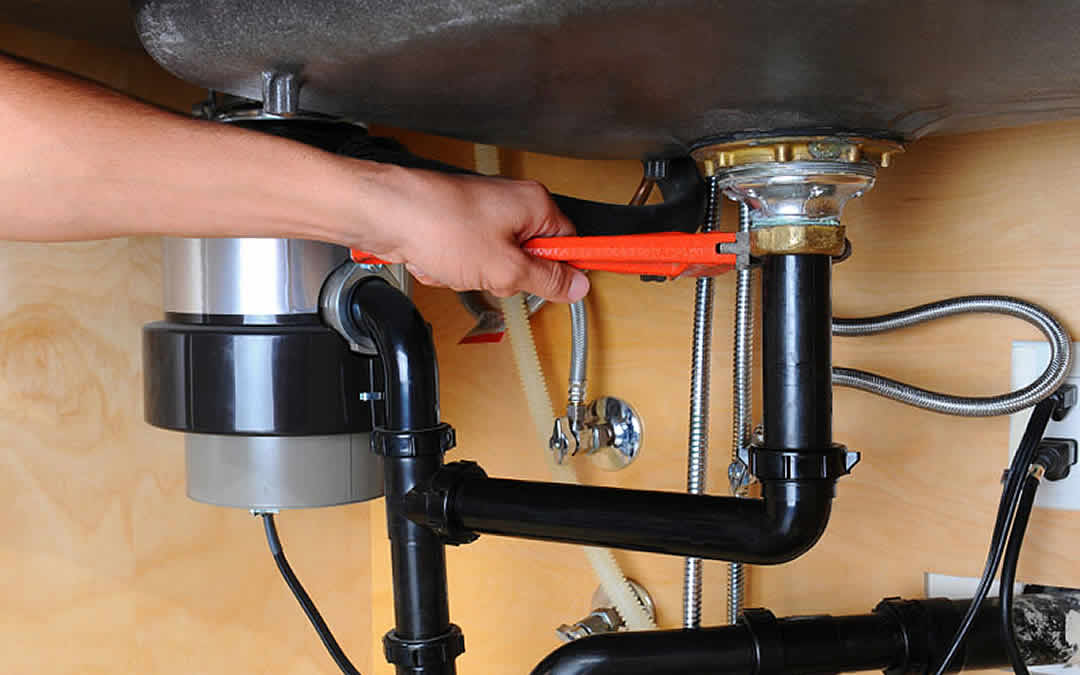An Comprehensive Guide to Fixing a Leaky Garbage Disposal
An Comprehensive Guide to Fixing a Leaky Garbage Disposal
Blog Article
Here in the next paragraph you will discover additional great resources in relation to Garbage Disposal Leaking From Bottom.

Waste disposal unit are essential kitchen home appliances that assist in dealing with food waste effectively. Nevertheless, a leaking waste disposal unit can be an irritating and unpleasant issue to take care of. Luckily, lots of leaks can be repaired easily with a couple of straightforward actions. In this short article, we will certainly review just how to repair a dripping waste disposal unit effectively.
Introduction
Garbage disposals are set up under kitchen area sinks and are created to shred food waste right into smaller items, permitting it to travel through the pipes system conveniently. While these devices are normally reliable, leaks can occur over time as a result of deterioration, loosened connections, or damages to the device.
Usual Sources Of Leaks in Garbage Disposals
Worn Seals and Gaskets
Seals and gaskets play a vital role in avoiding water from leaking out of the garbage disposal. Gradually, these elements can degrade, causing leakages around the disposal system.
Loose Connections
The links in between the garbage disposal and the plumbing system can come to be loosened gradually, causing water to leakage out throughout procedure.
Splits or Openings in the Disposal System
Physical damages to the waste disposal unit, such as fractures or holes in the real estate, can likewise lead to leakages.
Determining the Source of the Leakage
Prior to trying to deal with a dripping garbage disposal, it is essential to identify the source of the leak. This can typically be done through visual examination or by conducting straightforward tests.
Visual Evaluation
Inspect the garbage disposal unit carefully for any kind of signs of water leakage. Pay very close attention to locations around seals, gaskets, and link points.
Evaluating for Leakages
One method to evaluate for leakages is by running water with the disposal unit and looking for any noticeable signs of leak.
Devices and Materials Needed for Repairing a Dripping Garbage Disposal
Prior to starting the repair work procedure, collect the required devices and products, consisting of a screwdriver, adjustable wrench, plumbing technician's putty, substitute seals or gaskets, and epoxy or patching product for fixing splits or openings.
Step-by-Step Overview to Fixing a Leaking Garbage Disposal
Turn Off the Power
Before attempting any kind of repairs, ensure that the power to the waste disposal unit device is switched off to avoid the threat of electrical shock.
Situate the Leakage
Recognize the specific place of the leakage and determine the cause.
Tighten up Links
Make use of a wrench to tighten any kind of loosened links in between the disposal device and the pipes system.
Replace Seals or Gaskets
If the leakage is due to worn seals or gaskets, eliminate the old parts and replace them with brand-new ones.
Patching Fractures or Holes
For cracks or holes in the disposal device, use epoxy or an ideal patching material to secure the broken area.
Checking the Waste Disposal Unit After Repair Service
As soon as the repair is total, check the waste disposal unit by running water via it to ensure that the leak has been solved.
Preventive Upkeep Tips to Stay Clear Of Future Leakages
To prevent future leaks, it is essential to carry out routine maintenance on your garbage disposal. This includes maintaining it tidy, staying clear of putting non-food products or hard things down the disposal, and occasionally looking for leaks or various other concerns.
Final thought
To conclude, taking care of a leaking waste disposal unit is a fairly straightforward procedure that can be finished with standard devices and products. By adhering to the steps laid out in this article and exercising preventative maintenance, you can keep your waste disposal unit in good working condition and stay clear of pricey repair services in the future.
HERE’S HOW TO FIX YOUR GARBAGE DISPOSAL
WHAT TO DO IF SOMETHING IS STUCK IN YOUR GARBAGE DISPOSAL
If the impeller won’t turn, there’s probably something stuck in the disposal. It could be a steak bone or peach pit, although plumbers report pulling all sorts of inappropriate objects out of disposals, such as bottle caps or aluminum foil. Make sure power to the disposal is off, and look inside to see if you can see the source of the jam.
Never stick your fingers in a disposal. Pull out anything you see with tongs or pliers.
If the disposal still won’t work, it may be time to call a plumber or consider buying a new disposal. GEM Plumbing & Heating is here for all of your garbage disposal needs.
WHAT TO DO IF YOUR GARBAGE DISPOSAL DRAIN IS CLOGGED
Take everything out from underneath your sink and put a bucket or other container under your disposal to catch any water that drains out. Disconnect your disposal from the power supply. If it’s plugged into a wall outlet, unplug it. If it’s hardwired into an electrical box, go to the electrical panel and turn off the breaker for the disposal. Pour ¼ cup of baking soda into the drain, followed by ½ cup of white vinegar. Give the solution a few minutes to fizz and do its work. Look into the disposal with a flashlight to see if you can see an object that might be causing the clog. If you see it, remove it using tongs or pliers. MORE TIPS ON DEALING WITH A CLOGGED GARBAGE DISPOSAL
Never use drain cleaner in a garbage disposal. It can damage the plastic parts inside the disposal. You can also be splashed with the caustic liquid while working to clear the clog. Beware! Never stick your fingers into a garbage disposal. Trust us — not a good idea. In many instances, your dishwasher drains through your garbage disposal. This allows the disposal to grind any large food particles that may be drained out of your dishwasher. There are some jurisdictions, however, where the plumbing code prohibits such a connection. WHAT TO DO WHEN YOUR DISHWASHER DRAINS THROUGH THE DISPOSAL
Run some water in the sink so your plunger has at least a ½-inch of water to create a seal and plunge vigorously up and down several times. You may need to repeat this several times. Run hot water down the drain to clear any residue that remains.

Do you like reading about Why Is ? Try leaving a remark further down. We will be pleased to find out your thinking about this page. In hopes to see you back again later on. Are you aware of anybody else who is in the market for the topic? Feel free to share it. I enjoy reading our article about Why Is .
Visit Our Website Report this page